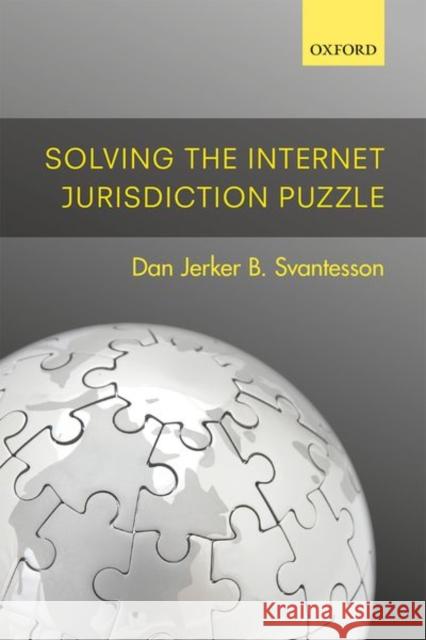Solving the Internet Jurisdiction Puzzle » książka
Solving the Internet Jurisdiction Puzzle
ISBN-13: 9780198795674 / Angielski / Twarda / 2017 / 265 str.
Internet jurisdiction has emerged as one of the greatest and most urgent challenges online; affecting areas as diverse as e-commerce, data privacy, law enforcement, content take-downs, cloud computing, e-health, cyber security, intellectual property, freedom of speech, and cyberwar. In this innovative book, Professor Svantesson presents a vision for a new approach to Internet jurisdiction based on an extensive period of research dedicated to the topic. The book demonstrates that our current paradigm remains attached to territorial thinking that is out of sync with our modern world, especially, but not only, online. Having made the claim that our adherence to the territoriality principle is based more on habit rather than on any clear and universally accepted legal principles, Professor Svantesson advances a new jurisprudential framework for how we approach jurisdiction - a framework that unites private, and public, international law. He alsoproposes several other reform initiatives aimed at equipping us to solve the Internet jurisdiction puzzle. In addition, the book provides a history of Internet jurisdiction, and challenges our traditional categorisation of different types of jurisdiction. It places Internet jurisdiction in a broadercontext and outlines methods for how to properly understand and work with rules of Internet jurisdiction.While Solving the Internet Jurisdiction Puzzle paints a clear picture of the concerns involved and the problems that needs to be overcome, this book is distinctly aimed at finding practical solutions anchored in a solid theoretical framework.Professor Svantesson argues that many of the Internet jurisdiction problems we face are due to a sleepwalking-like acceptance of orthodox thinking. Solving the Internet Jurisdiction Puzzle acts as a wake-up call to this issue.
This book deals with the topic of Internet jurisdiction, and why territoriality is not suitable in determining this area. Svantesson surveys possible solutions advanced in the area of Internet jurisdiction, as well as assessing the new proposals for law reform that demand a paradigm shift in relation to jurisdiction.











